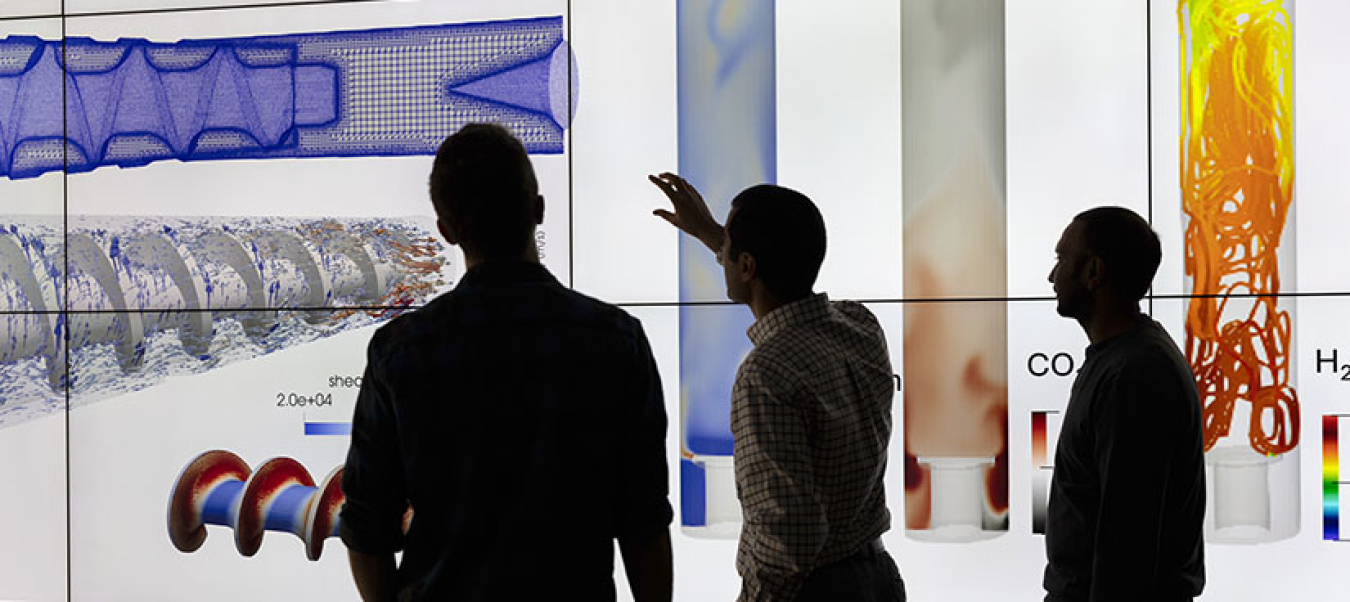Researchers at the National Renewable Energy Laboratory (NREL) Computational Science Center are hard at work enabling the conversion of biomass to fuels and products at industrial scale. Computational tools can model biomass conversion at scales ranging from small lab beakers to biorefineries, which can help accelerate and de-risk the newest technology developments.
March 7, 2024
Researchers at NREL discuss computational models for bioconversion processes in the Energy Systems Integration Facility in Golden, Colorado. Photo by Joe DelNero / NREL.
Researchers at the National Renewable Energy Laboratory (NREL) Computational Science Center are hard at work enabling the conversion of biomass to fuels and products at industrial scale. Computational tools can model biomass conversion at scales ranging from small lab beakers to biorefineries, which can help accelerate and de-risk the newest technology developments.
Recent computational studies in biomass conversion have made use of funding from the U.S. Department of Energy's (DOE) Bioenergy Technologies Office (BETO) and high-performance computing resources at NREL to investigate and solve complex conversion challenges, such as producing sustainable aviation fuels (SAF).
Three of NREL’s ongoing advanced computing projects include:
- Predicting energy requirements and mechanical failure when feeding solid biomass into a reactor, critical aspects that govern the operation of an entire biomass conversion plant.
- Identifying an industrial-scale pathway to convert biomass to 2,3-butanediol, an important intermediate for downstream production of SAF and chemical products.
- Harnessing computational tools that link simulated conversion steps to build a virtual biorefinery, thus capturing the entire process of biomass conversion from feedstock to fuel.
Learn more about these BETO-funded projects and how NREL is using computational modeling to enable pathways to biofuels.

